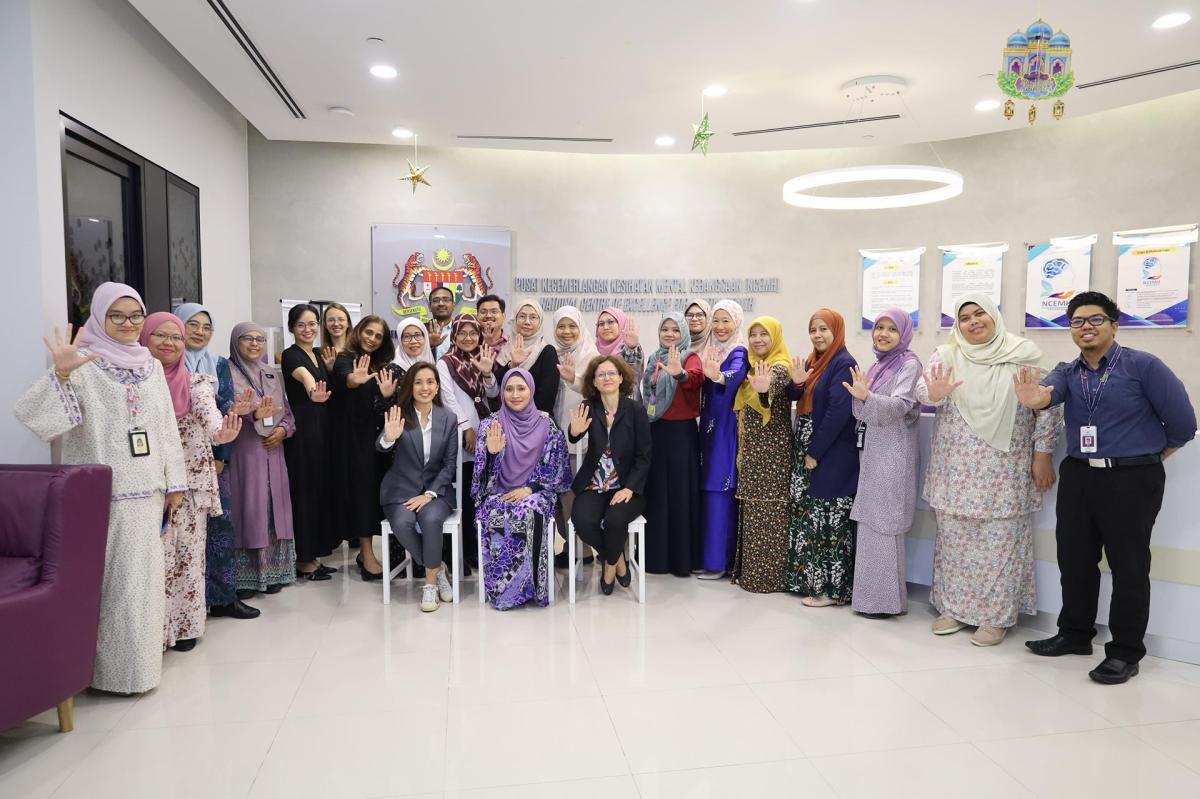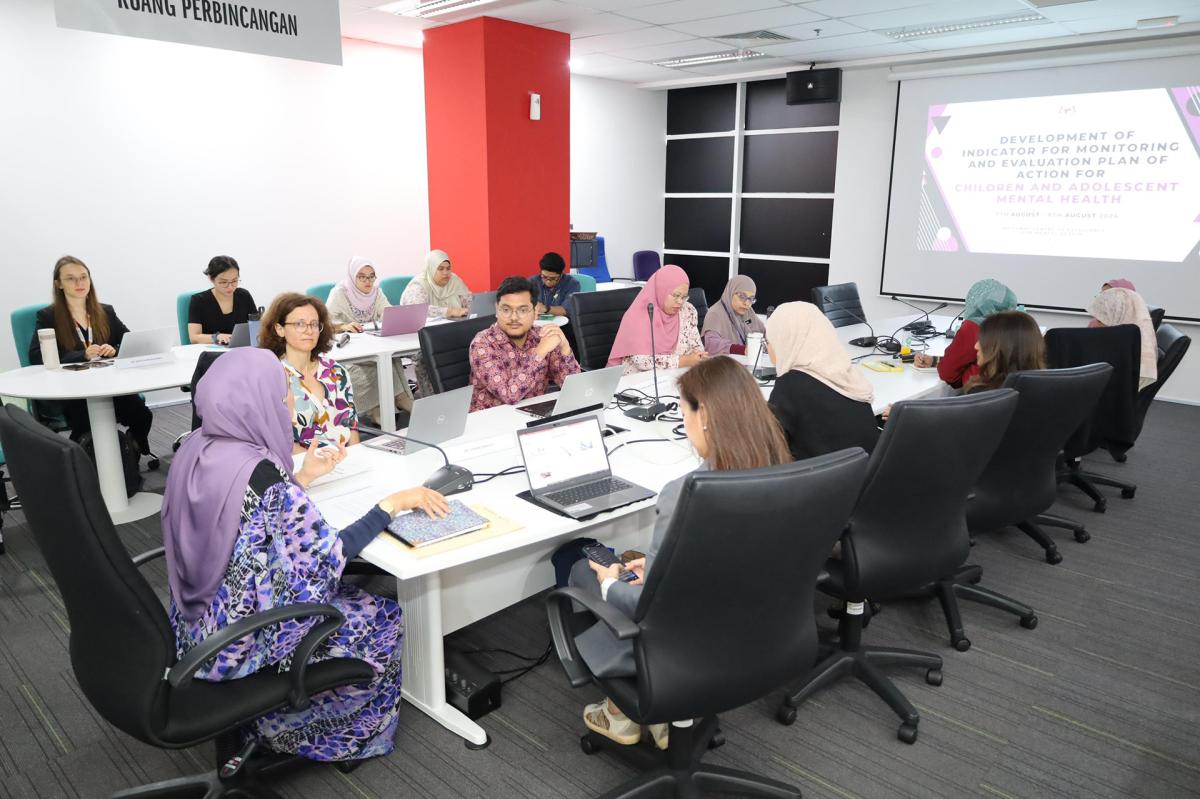WHO Global Coordination Mechanism on NCDs
The WHO GCM/NCD Year-in-Review 2025: Partnerships and Actions on NCDs
Meaningful Engagement of People with Lived Experiences
17 Dec 2025
WHO Regional Office for Western Pacific | 27 Sep 2024
In the wake of the COVID-19 pandemic, the mental health crisis among children and adolescents has become more pronounced globally. In Malaysia, the situation is particularly dire, with the 2022 National Health Morbidity Survey revealing that one in four adolescents is battling depression, and one in ten has reported a suicidal attempt. These alarming statistics highlight the urgent need for targeted mental health interventions.
Strategic National Efforts
Recognising this urgent need, the Ministry of Health (MOH) has taken significant steps to address these challenges through the National Strategic Plan for Mental Health 2020 - 2025. The plan has a core aim to reduce adolescent depression rates from 18% to 10% by 2025.
To further bolster these efforts, the National Centre of Excellence on Mental Health (NCEMH) has been at the forefront of developing a comprehensive National Plan of Action for Children and Adolescent Mental Health (CAMH POA). This plan was co-developed with other ministries and stakeholders in Malaysia and is supported by the World Health Organization (WHO) and UNICEF under their Joint Programme on Mental Health and Psychosocial Well-Being and Development of Children and Adolescents (Joint Programme).
Uniting Experts to Shape Mental Health
In early August 2024, a workshop was held at the NCEMH in Cyberjaya, Selangor. This workshop brought together experts from WHO and UNICEF to co-develop a robust Monitoring and Evaluation (M&E) framework for the CAMH POA.

Dr. Nurashikin Binti Ibrahim, Director of NCEMH, shared her thoughts on the workshop, “It was a pleasure to engage in collaborative efforts with WHO experts from Headquarters, the Western Pacific Regional Office and Country Office to develop the National Strategic Plan of Children & Adolescent Mental Health. It was indeed an outstanding and smooth process throughout the workshop, and NCEMH is delighted to receive insightful ideas and comments from the experts of WHO, demonstrating exceptional quality and effectiveness to develop an impactful way forward in implementing the policy of mental health for this country.”
The primary goal of the workshop was to create measurable indicators that would ensure the plan’s transparency, effectiveness and accountability. Indicators were based on a comprehensive list of indicators from the WHO’s Comprehensive Mental Health Action Plan 2012 – 2030, Regional Framework for the Future of Mental Health in the Western Pacific 2023 – 2030 and the Joint Programme that is adapted to the local contexts based on data availability and feasibility for collection. Through the process of developing the list of indicators, participants had discussed and identified indicators that are feasible and measurable while learning from international guidelines and experience on M&E frameworks.

Dr. Sivarajan Ramasamy, a Public Health Specialist, highlighted the significance of this initiative, saying, “The workshop has underscored the importance of a structured and comprehensive approach to mental health that is evidence-based and culturally sensitive. The discussions and strategies presented are reflective of a deep understanding of the challenges faced by children and adolescents in Malaysia. The emphasis on promotion, prevention, and responsive care is particularly commendable, as it aligns with the holistic approach necessary to ensure the mental well-being of our youth.”
Advocating for Sustainable Solutions
The collaborative efforts between NCEMH, WHO, and UNICEF have set a strong foundation for the CAMH POA. By focusing on multisectoral, community-based, sustainable and scalable solutions, this initiative promises to improve mental health outcomes and foster a supportive environment where every child and adolescent can thrive. As children and adolescent mental health require a whole-of-society approach, we need to continue working together to ensure that the plan of action is not just a document, but a catalyst for positive change.